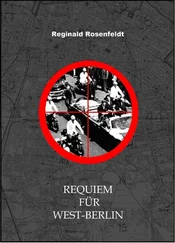Isaiah Berlin - Russian Thinkers
Здесь есть возможность читать онлайн «Isaiah Berlin - Russian Thinkers» весь текст электронной книги совершенно бесплатно (целиком полную версию без сокращений). В некоторых случаях можно слушать аудио, скачать через торрент в формате fb2 и присутствует краткое содержание. Год выпуска: 0101, Жанр: Старинная литература, на русском языке. Описание произведения, (предисловие) а так же отзывы посетителей доступны на портале библиотеки ЛибКат.
- Название:Russian Thinkers
- Автор:
- Жанр:
- Год:0101
- ISBN:нет данных
- Рейтинг книги:3 / 5. Голосов: 1
-
Избранное:Добавить в избранное
- Отзывы:
-
Ваша оценка:
- 60
- 1
- 2
- 3
- 4
- 5
Russian Thinkers: краткое содержание, описание и аннотация
Предлагаем к чтению аннотацию, описание, краткое содержание или предисловие (зависит от того, что написал сам автор книги «Russian Thinkers»). Если вы не нашли необходимую информацию о книге — напишите в комментариях, мы постараемся отыскать её.
Russian Thinkers — читать онлайн бесплатно полную книгу (весь текст) целиком
Ниже представлен текст книги, разбитый по страницам. Система сохранения места последней прочитанной страницы, позволяет с удобством читать онлайн бесплатно книгу «Russian Thinkers», без необходимости каждый раз заново искать на чём Вы остановились. Поставьте закладку, и сможете в любой момент перейти на страницу, на которой закончили чтение.
Интервал:
Закладка:
and the violent acts of the extreme left, and continued to support the
uneasy alliance.
This painful conflict, which became the permanent predicament
of the Russian liberals for half a century, has now grown world-wide.
We must be clear: it is not the Baza.rovs who are the champions of
the rebellion today. In a sense, the Bazarovs have won. The victorious
advance of quantitative methods, belief in the organisation of human
lives by technological management, reliance on nothing but calculation
of utilitarian consequences in evaluating policies that affect vast
numbers of human beings, this is Bazarov, not the Kirsanovs. The
triumphs of the calm moral arithmetic of cost-effectiveness which
liberates decent men from qualms, because they no longer think of
th.! entities to which they apply their scientific computations as actual
human .beings who live the lives and suffer the deaths of concrete
individuals-this, today, is rather more typical of the establishment
than of the opposition. The suspicion of all that is qualitative, imprecise,
unanalysable, yet precious to men, and its relegation to Bazarov's
obsolete, intuitive, pre-scientific rubbish heap, has, by a strange
paradox, stirred both the anti-rationalist right and the irrationalist left
to an equally vehement opposition to the technocratic establishment
in the middle. From their opposed standpoints the extreme left and
the extreme right see such efforts to rationalise social life as a terrible
threat to what both sides regard as the deepest human values. If
Turgenev were living at this hour, the young radicals whom he
would wish to describe, and perhaps to please, are those who wish to
rescue men from the reign of those very. 'sophisters, economists, and
calculators' whose coming Burke lamented-those who ignore or
300

FATHERS AND C H I LD REN
despise what men are and what they live by. The new insurgents of
our time favour-so far as they a.n bring themselves to be at all
coherent-something like a vague species of the old, natural law. They
want to build a society in which men treat one another as human
beings with unique claims to self-expression, however undisciplined
and wild, not as producing or consuming units in a centralised, worldwide, self-propelling social mechanism. Bazarov's progeny has won, and it is the descendants of the defeated, despised 'superfluous men',
of the Rudins and Kirsanovs and N ezhdanovs, of Chekhov's muddled,
pathetic students and cynical, broken doctors, who are today preparing
to man the revolutionary barricades. Yet the similarity with Turgenev's
predicament does hold: the modern rebels believe, as Bazarov and
Pisarev and Bakunin believed, that the first requirement is the clean
sweep, the total destruction of the present system; the rest is not their
business. The future must look after itself. Better anarchy than
prison; there is nothing in between. This violent cry meets with a
similar response in the breasts of our contemporary Shubins and
Kirsanovs and Potugins, the small, hesitant, self�ritical, not always
very brave, band of men who occupy a position somewhere to the
left of centre, and are morally repelled both by the hard faces to their
right and the hysteria and mindless violence and demagoguery on
their left. Like the men of the 40s, for whom Turgenev spoke, they
are at once horrified and fascinated. They are shocked by the violent
irrationalism of the dervishes on the left, yet they are not prepared to
reject wholesale the position of those who claim to represent the young
and the disinherited, the indignant champions of the poor and the
socially deprived or repressed. This is the notoriously unsatisfactory,
at times agonising, position of the modern heirs of the liberal tradition.
'I understand the reasons for the anger which my book provoked
in a certain party,' wrote Turgenev just over a hundred years ago.
'A shadow has fallen upon my name . . . But is this really of the slightest
importance? Who, in twenty or thirty years' time, will remember all
these storms in a teacup, or indeed my name, with or without a
shadow�'1 Turgenev's name still lies under a shadow in his native
land. His artistic reputation is not in question; it is as a social thinker
that he is still today the subject of a continuing dispute. The situation
that he diagnosed in novel after novel, the painful predicament of the
believers in liberal western values, a predicament once thought
1 op. cit. (p. :z8z, note :z above), p. I S9·
JO I
R U SS IAN THINKERS
peculiarly Russian, is today familiar everywhere. So, too, is his own
oscillating, uncertain position, his horror of reactionaries, his fear of
the barbarous radicals, mingled with a pasllionate anxiety to be understood and approved of by the ardent young. Still more familiar is his inability, despite his greater sympathy for the patty of protest, to cross
over unreservedly to either side ·in the conflict of ideas, classes, and,
above all, generations. The figure of the well-meaning, troubled, selfquestioning liberal, witness to the complex truth, which, as a literary type, Turgenev virtually created in his own image, has today become
universal. These are the men who, when the battle grows too hot,
tend either to stop their ears to the terrible din, or attempt to promote
armistices, save lives, aven chaos.
As for the storm in a teacup, of which Turgenev spoke, so far from
being forgotten, it blows over the entire world today. If the inner life,
the ideas, the moral predicament of men matter at all in explaining
the course of human history, then Turgeriev's novels, especially
Fathtrs and Childrm, quite apan from their literary qualities, are as
basic a document for the understanding of the Russian past and of our
present as the plays of Aristophanes for the understanding of classical
Athens, or Cicero's letters, or novels by Dickens or George Eliot, for
the understanding of Rome and Victorian England.
Turgenev may have loved Bazarov; he certainly trembled before
him. He understood, and to a degree sympathized with, the case
presented by the new J acobins, but he could not bear to think of what
their feet would trample. 'We have the same credulity', he wrote in the
mid-1 86os, 'and the same cruelty; the same hunger for blood, gold,
filth . . . the same meaningless suffering in the name of . . . the same
nonsense as that which Aristophanes mocked at two thousand years
ago • . .'1 And an? And beauty? 'Yes, these are powerful words . . .
The P mus of Milo is less open to question than Roman Law or the
principles of 1 789'1-yet she, too, and the works of Goethe and
Beethoven would perish. Cold-eyed Isis-as he calls nature-'has no
cause for haste. Soon or late, she will have the upper hand . . . she
knows nothing of an or liberty, as she does not know the good • . .'3
1 Quoted from DIJtJol',o, an address read by him in r 86+o which was later
caricatured by Dostoevsky in Tile Posstsml. See So!Jra,it rod1i,t11ii, vol. 9•
PP· I I B-19.
I ibid., P· 1 19.
I ibid., P· I ZO.
JO:I

FATHERS AND C H I LDREN
But why must men hurry so zealously to help her with her work of
turning all to dustl Education, only education, can retard this painful
Читать дальшеИнтервал:
Закладка:
Похожие книги на «Russian Thinkers»
Представляем Вашему вниманию похожие книги на «Russian Thinkers» списком для выбора. Мы отобрали схожую по названию и смыслу литературу в надежде предоставить читателям больше вариантов отыскать новые, интересные, ещё непрочитанные произведения.
Обсуждение, отзывы о книге «Russian Thinkers» и просто собственные мнения читателей. Оставьте ваши комментарии, напишите, что Вы думаете о произведении, его смысле или главных героях. Укажите что конкретно понравилось, а что нет, и почему Вы так считаете.










